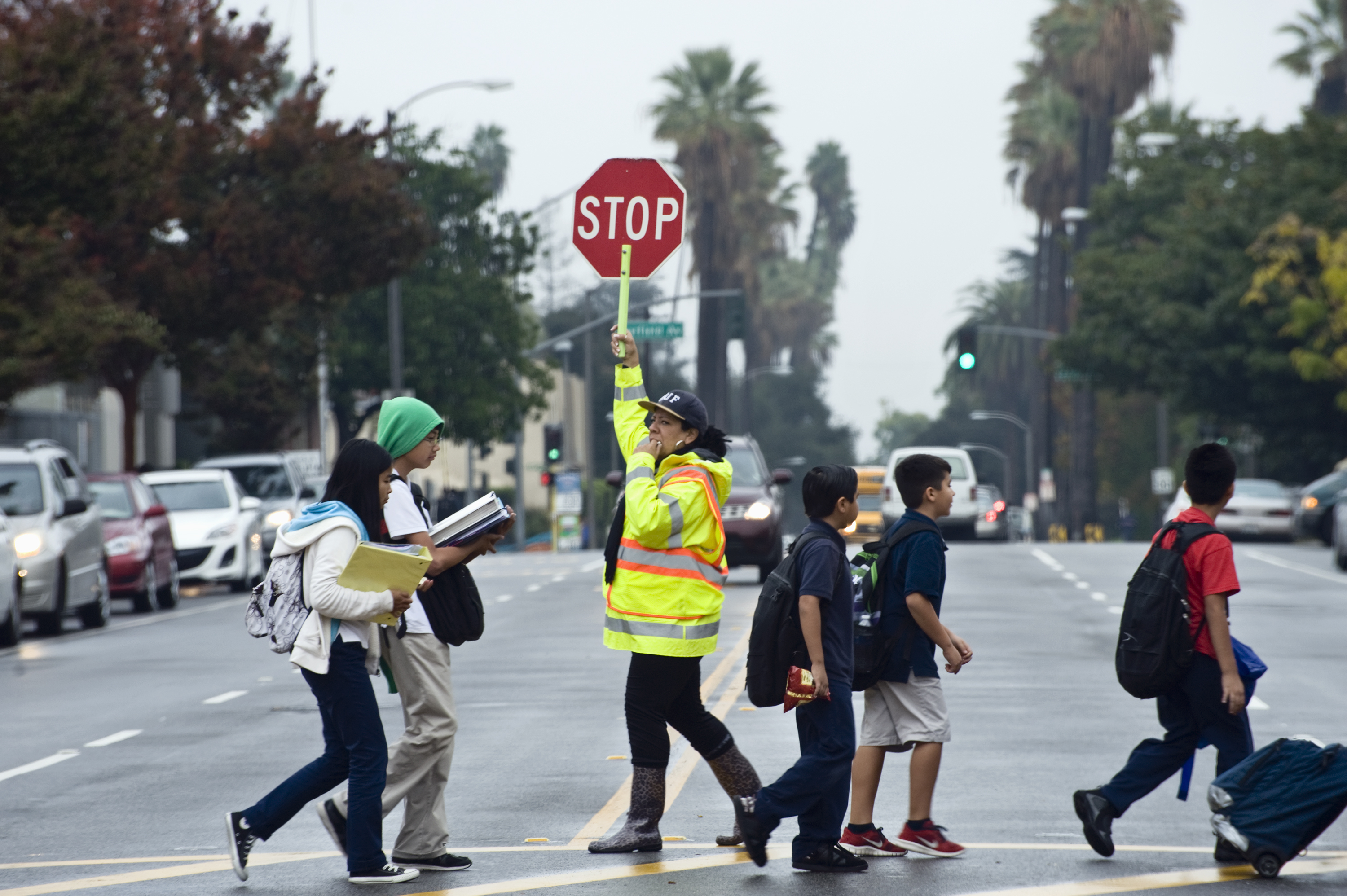
This fall has been full of disruption on Capitol Hill. A last-minute continuing resolution to avert a government shutdown followed by a three-week vacancy in the Speaker of the House position, and now days away from another government shutdown with no immediate solution in sight. What does it all mean for transportation, especially walking, bicycling, Safe Routes to School, and programs created in the Bipartisan Infrastructure Law to advance transportation equity?
The formula programs (Transportation Alternatives, Highway Safety Improvement Program, etc.) were authorized and appropriated under the Bipartisan Infrastructure Law, so for the most part, those programs are safe and will remain funded in spite of what happens with the rest of the federal budget. What this means is, that states can continue administering Transportation Alternatives Program funds, the primary source of funding for walking, bicycling, and Safe Routes to School – so keep your ideas moving forward through the project application and delivery process! But the discretionary programs, the programs administered and competed out by the US Department of Transportation (US DOT) are more at risk of change or defunding.
The Senate passed its FY24 Transportation, Housing, and Urban Development (THUD) budget, which was a mixed bag for active transportation programs. It dealt a blow to the US DOT Thriving Communities program, which aims to support local communities to access and deliver on federally funded transportation projects, by zeroing out its funding. On the positive side, it included $45 million for the Active Transportation Infrastructure Investment Program, which was created but not funded in the Bipartisan Infrastructure Law.
On the House side, the Transportation, Housing, and Urban Development (THUD) budget for fiscal year 2024 has not yet come to a vote due to disagreements within the Republican caucus about Amtrak funding. There is one amendment, offered by Rep. Ronny Jackson (TX-13) to prohibit the use of funds to support the Advisory Committee on Active Transportation, which the Safe Routes Partnership has encouraged members to oppose. Three amendments have been offered that we have encouraged members to support, offered by Rep. Adriano Espaillat (NY-13), a stalwart champion of our issues, to
support the US DOT’s ability to use Reconnecting Communities and Neighborhood Access and Equity grants for their prescribed purposes; Rep. Adam Schiff (CA-30) to strike language in the bill prohibiting use of funds for the DOT’s Equity Action Plan (in essence, this amendment preserves funding for DOT’s Equity Action Plan); and freshman Rep. Summer Lee (PA-12) to similarly strike language that would gut DOT’s use of funds to implement its Equity Action Plan, again aiming to preserve this funding for its intended purpose of implementing US DOT’s Equity Action Plan. Read the Transportation Equity Caucus’s statement on these amendments to the House THUD budget, which the Safe Routes Partnership has signed.
As a community of places and people committed to safer, more convenient, and equitable places to walk and bicycle, we can demonstrate our support for these programs by utilizing them! In addition to making members of Congress aware of the positive impact of these programs in our communities, it sends a strong message when we demonstrate that there is high demand and uptake for these programs.
For communities, if you are interested in pursuing federal transportation funds or desire support delivering on a federally-funded transportation project, there is still time to submit a letter of interest to receive technical assistance through the US DOT’s Thriving Communities Program, though it’s a tight turnaround with a November 15 deadline. US DOT has made it simple for communities to express interest in receiving support. Access this worksheet to draft your application, and submit your letter of interest via this webform.
Apart from that, stay up to date on your state’s Transportation Alternatives competition dates, and look ahead to the forecasted dates for discretionary grant programs your community can apply for funding through. We suggest focusing on Safe Streets and Roads for All; RAISE; and Reconnecting Communities and Neighborhoods. If you are a DOT, be proactive about use your Transportation Alternatives technical assistance funds to support getting good applications in the door and help communities deliver these projects.
As always, we’re here for your questions, comments, and feedback at marisa@saferoutespartnership.org

